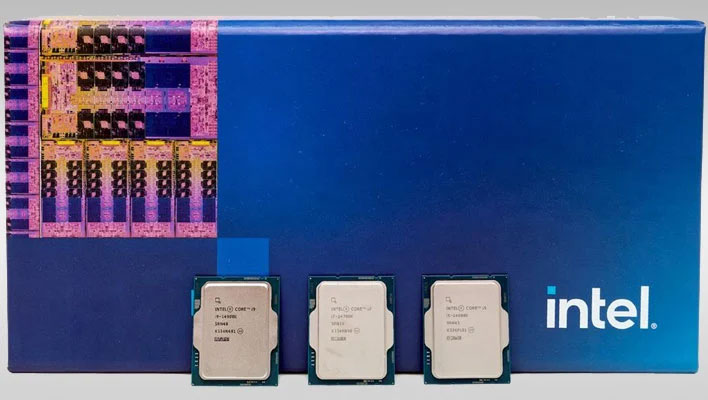While Intel is standing firm on not recalling its 14th and 13th Gen Core processors amid a rash of crashing complaints, it has decided to offer an additional two years of warranty coverage. The extended warranty applies to retail boxed processors that already come with a three-year warranty, so the additional coverage provides insurance against lingering stability issues for a total term of five years.
"Intel is committed to making sure all customers who have or are currently experiencing instability symptoms on their 13th and/or 14th Gen desktop processors are supported in the exchange process. We stand behind our products, and in the coming days we will be sharing more details on two-year extended warranty support for our boxed Intel Core 13th and 14th Gen desktop processors," Intel said in a statement posted to Reddit.
The chip maker (not us) emphasized the two-year extension in bold. Intel went on to advise affected owners of a boxed chips to reach out to its
customer support for assistance, and for users who are running into issues on a system purchased from an OEM/system integrator to reach out to the manufacturer. That latter bit suggests Intel is working with its OEM/SI partners to ensure no one is left in the lurch.
In the same post, Intel added some commentary about the Via Oxidation issue that it maintains is a separate and "minor" issue that it already addressed with "manufacturing and screens" early last year.
"The issue was identified in late 2022, and with the manufacturing improvements and additional screens implemented Intel was able to confirm full removal of impacted processors in our supply chain by early 2024. However, on-shelf inventory may have persisted into early 2024 as a result.
Minor manufacturing issues are an inescapable fact with all silicon products," Intel said.
"Intel continuously works with customers to troubleshoot and remediate product failure reports and provides public communications on product issues when the customer risk exceeds Intel quality control thresholds," Intel added.
The issue with Intel's chips has received a lot of media attention lately, in part because of frustrated game developers speaking out about their own experiences with affected chip models. What it boils down to,
according to Intel, is incorrect voltage requests to affected processor models stemming from a faulty microcode algorithm. Intel is working on a microcode update to address the issue, which it plans on having in the hands of its motherboard partners this month.
Unfortunately, once stability issues begin to manifest, it is likely a sign of permanent damage that a microcode update will not fix. During a
recent interview with
The Verge, Intel offered some additional information about the situation, saying that the issue also affects mainstream 65W chips, including non-K models, and not just its higher-end SKUs.
Importantly, however, Intel stressed that this doesn't mean that every potentially affected chip will encounter this problem. That isn't likely to come as any peace of mind to owners of 14th and 13th Gen Core processors, but the
extended warranty combined with the upcoming microcode update very well might.

